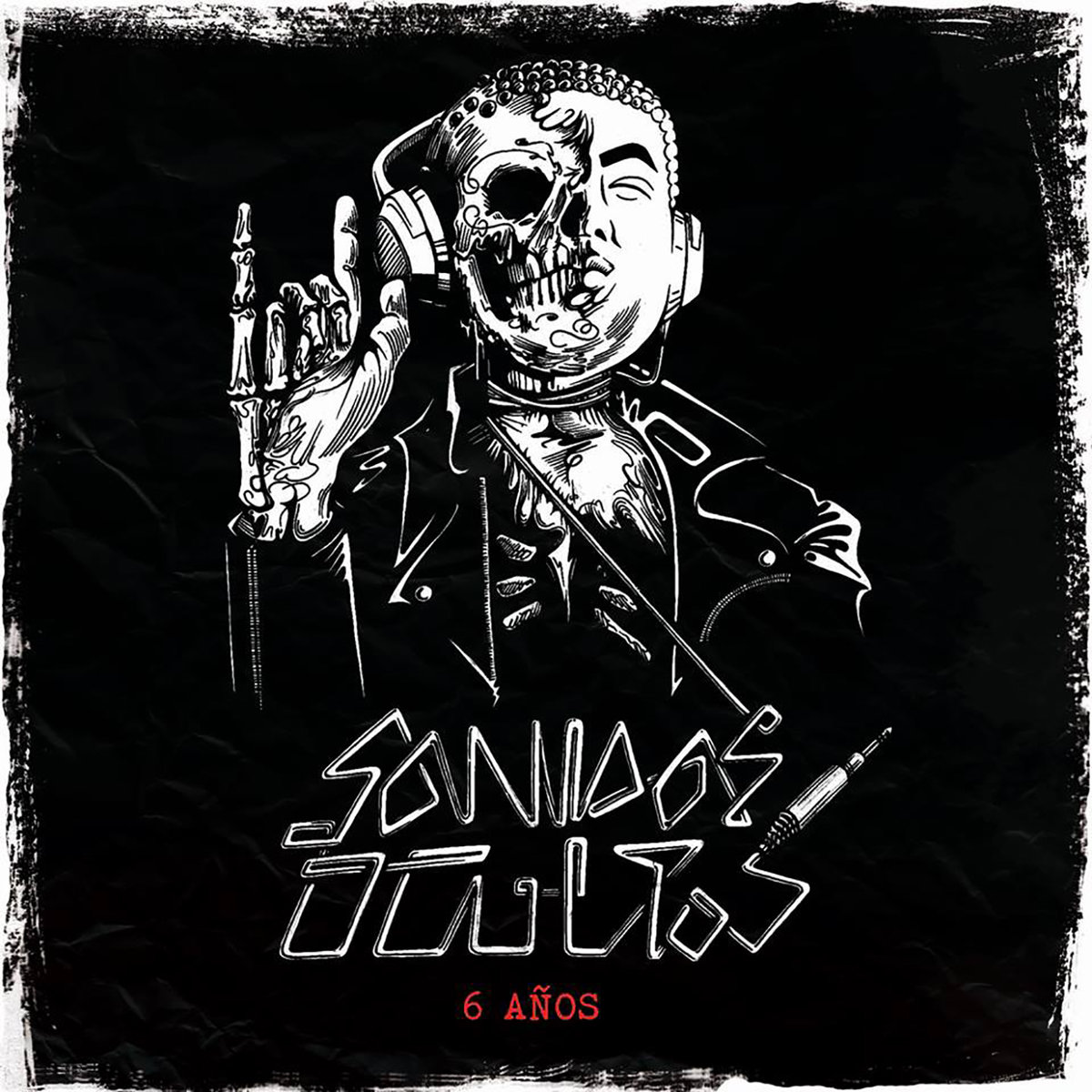

Limp Bizkit – “Still Sucks” (2021)
lunes 15 de noviembre, 2021
Escrito por: Francisco Quevedo


- Limp Bizkit
- “Still Sucks” (2021)
- ¡Haz clic para puntuar esta entrada!(Votos: 1 Promedio: 5)
- Escucha nuestra música
El nuevo trabajo de Limp Bizkit se podría considerar como un digno regreso o bien, como una sátira, un álbum en que se ríen de sí mismos sin ningún asco y que parece más una broma. Depende de la vereda en que usted esté parado analizando a Limp Bizkit.
“Still Sucks” dura apenas 32 minutos. Es el disco más breve en la carrera del grupo. Todo comienza con una patada noventera en la cara. Los primeros tres cortes – “Out of Styles”, “Dirty Rotten Bizkit” y “Dad Vibes” – son potentes ráfagas que traen de vuelta ese sonido que catapultó a Limp Bizkit al sitial de privilegio que tuvieron hace dos décadas: al tope del estilo nu-metal. Aunque a muchos no les guste, les den ganas de vomitar, o prefieran ningunearlos, la banda sí gozó de ese status. Y esa fue una de las razones que produjo más morbo ahora, el saber con qué nos sorprendería la agrupación tras diez años de silencio musical. Precisamente, las canciones que abren el álbum tienen ese toque nostálgico y bien podrían haber estado en alguno de aquellos discos a fines de los noventa y comienzos de la década de los 2000.
Sin embargo, después el disco es un poco inconsistente. El cover de “Don’t Change” de la banda INXS pasa casi sin pena ni gloria, cuál espectro, lejos de emular el éxito alcanzado con esta fórmula en discos anteriores (“Behind Blue Eyes” de The Who en “Result May Vary” de 2003). En cambio, canciones como “You Bring Out the Worst in Me”, “Love the Hate”, “Phil Popper” y “Goodbye” le dan estabilidad a la placa. En ellas se combinan el rap, el metal, la potencia, la irreverencia y la crítica (por ejemplo, al mercado de los fármacos en Estados Unidos en “Phil Popper”). Sumadas a las dos primeras, son la columna vertebral del nuevo disco de Limp Bizkit.
Dicha columna vertebral es acompañada por canciones que “dan y quitan”. Un buen ejemplo es “Snacky Poo”, una cómica canción en que se destaca la mano de DJ Lethal y la voz de Durst en modo rapeo, rematando con una entrevista telefónica a Wes Borland. En cambio, en “Barnacle” tributan al grunge, estilo que dominó la primera mitad de los noventa, con claros guiños al sonido de Stone Temple Pilots y Nirvana.
Además, la faceta más calmada, si se quiere madura, queda en manifiesto con “Empty Hole”, balada muy al estilo Jerry Cantrell y todo ese universo de Alice in Chains. Así, el álbum avanza entre pasajes tranquilos y potentes, intercalando ambos mundos de una manera que resulta efectiva.
A pesar de que ellos se ríen de sí mismos, hacen burlas al grupo y alusiones directas al desprecio del medio, “Still Sucks” muestra una faceta un poco más madura del grupo. La formación clásica de Wes Borland en guitarras, Sam Rivers en el bajo, John Otto en las baquetas, DJ Lethal y Fred Durst en las voces se luce, en especial en la descrita columna vertebral.
Con algunos matices, “Still Sucks” responde al Limp Bizkit de siempre, a ese que reinó a principios de la década del 2000. Esa es una gracia y desgracia al mismo tiempo. Por una parte, es bueno reencontrarse con ese estilo que uno creía perdido (y que algunos celebran que haya desaparecido), pero también es un poco decepcionante que, después de 10 años en silencio, el resultado sea así. Es una paradoja que tiene este nuevo álbum. Explicado eso, es mejor ver el vaso medio lleno y quedarse con los momentos rescatables. Y “Still Sucks” los tiene.
Limp Bizkit – “Still Sucks” (2021)
Limp Bizkit’s new work could be considered as a worthy comeback or, as a satire, an album in which they laugh at themselves without any disgust and that seems more like a joke. It depends on where you are standing analyzing Limp Bizkit.
Still Sucks is just 32 minutes long. It is the shortest album in the group’s career. It all starts with a 90s kick to the face. The first three tracks – “Out of Styles”, “Dirty Rotten Bizkit” and “Dad Vibes” – are powerful bursts that bring back that sound that catapulted Limp Bizkit to the privileged place they had two decades ago: at the top of the style nu-metal. Although many do not like it, make them want to vomit, or prefer not to, the band did enjoy that status. And that was one of the reasons that produced more morbidity now, knowing how the group would surprise us after ten years of musical silence. Precisely, the songs that open the album have that nostalgic touch and could well have been on one of those albums in the late nineties and early 2000s.
However, afterwards the album is a bit inconsistent. The cover of «Don’t Change» by the band INXS passes almost without pain or glory, which spectrum, far from emulating the success achieved with this formula on previous albums («Behind Blue Eyes» by The Who on «Result May Vary» 2003). Instead, songs like «You Bring Out the Worst in Me», «Love the Hate», «Phil Popper» and «Goodbye» give stability to the plate. They combine rap, metal, power, irreverence and criticism (for example, the drug market in the United States in «Phil Popper»). Added to the first two, they are the backbone of the new Limp Bizkit album.
This backbone is accompanied by songs that «give and take». A good example is “Snacky Poo”, a comical song featuring DJ Lethal’s hand and Durst’s voice in rapping mode, finishing off with a telephone interview with Wes Borland. On the other hand, in “Barnacle” they pay tribute to grunge, a style that dominated the first half of the nineties, with clear nods to the sound of Stone Temple Pilots and Nirvana.
In addition, the calmer side, if you want to mature, is revealed with “Empty Hole”, a ballad very much in the style of Jerry Cantrell and all that Alice in Chains universe. Thus, the album progresses between calm and powerful passages, interspersing both worlds in a way that is effective.
Despite the fact that they laugh at themselves, make fun of the group and direct allusions to the contempt of the medium, «Still Sucks» shows a slightly more mature side of the group. The classic lineup of Wes Borland on guitars, Sam Rivers on bass, John Otto on drumsticks, DJ Lethal and Fred Durst on vocals shines through, especially in the described spine.
With some nuances, “Still Sucks” responds to the same old Limp Bizkit, the one that reigned in the early 2000s. That is a grace and a disgrace at the same time. On the one hand, it is good to rediscover that style that one thought was lost (and that some celebrate that it has disappeared), but it is also a bit disappointing that, after 10 years in silence, the result is like this. It is a paradox that this new album has. With that explained, it is better to see the glass half full and stay with the redeemable moments. And «Still Sucks» has them.
Este artículo ha sido visitado 686 veces, de las cuales 1 han sido hoy



























